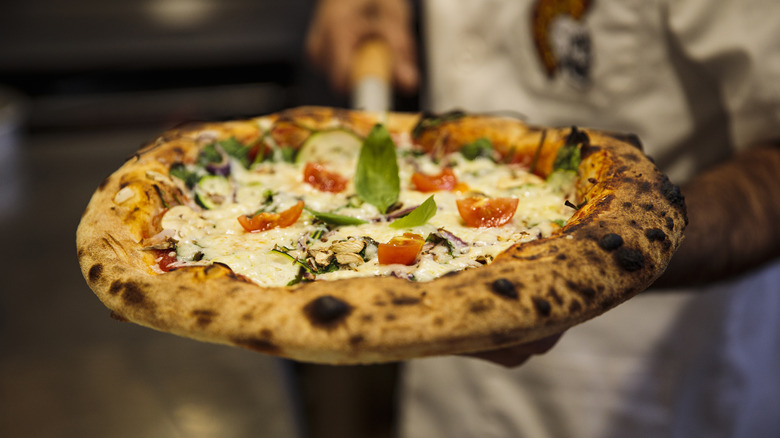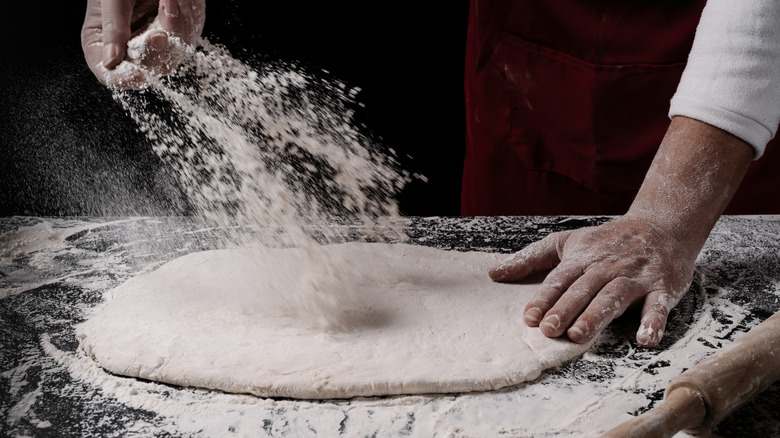What Is The Best Flour For Homemade Pizza Dough?
Instead of relying on complexity, iconic Italian recipes are famously simple. Consequently, the success of a recipe depends in large part on the quality of its ingredients. Pizza dough, which consists of only a handful of ingredients, exemplifies this point. Choosing the right kind of flour is key to achieving the chewy yet crisp pizza crust you desire. We've consulted the 13-time World Pizza Champion to help you make the best choice.
In an interview with Tony Gemignani, chef and owner of Tony's Pizza Napoletana in San Francisco, he stressed that "Flour is the heart and soul of a pizza, so it's important to choose the right one for the job." That said, there are various considerations involved in making the right choice, including "the type of pizza you want to make, the temperature you are cooking at, and the length of time you want your dough to mature."
If you're cooking at home, your kitchen probably doesn't have a specialized pizza oven that can reach the astronomical temperatures necessary to cook a pizza in 90 seconds. So for a homemade pizza dough, chef Gemignani says, "High-protein flours cook better in low-temperature ovens (like one you would have at home)." In contrast to low-protein flours, which thrive at super high temperatures, high-protein flour cooked at home oven temperatures "will add more structure to the dough, brown better in the oven, and make it chewier and stronger."
00 flour is ideal
In case you're wondering about the significance of protein to flour, the answer is that proteins are the building blocks of gluten, and gluten development is what gives pizza dough its strength and elasticity. There are, however, two different proteins involved in gluten development, each responsible for different capabilities.
High-protein flour comes in many forms, and chef Gemignani specifies 00 flour as the ideal high-protein flour that home chefs need for their pizza dough. Also known as doppio zero flour, 00 flour is used specifically for pizza and pasta dough in Italy. It's characterized as being ground to a super-fine powdery consistency. Still, 00 flour also falls under high- and low-protein categories. "So if opting for 00 flour, be sure it has high-protein content if cooking your pizza in a traditional oven."
As an award-winning pizza champion, Gemignani developed and markets his own proprietary 00 flour blend that he describes as "both high protein and high gluten, so it's perfect for cooking at 500-600 degrees [Fahrenheit]." Chef Gemignani's 00 flour blend is ideal for a home-baked thin crust neapolitan-style pizza, like the kind he cranks out at his San Francisco pizzeria. Try it in our recipe for Neapolitan pizza dough. A high gluten flour is also ideal for thicker, denser Sicilian-style square pies as well.

